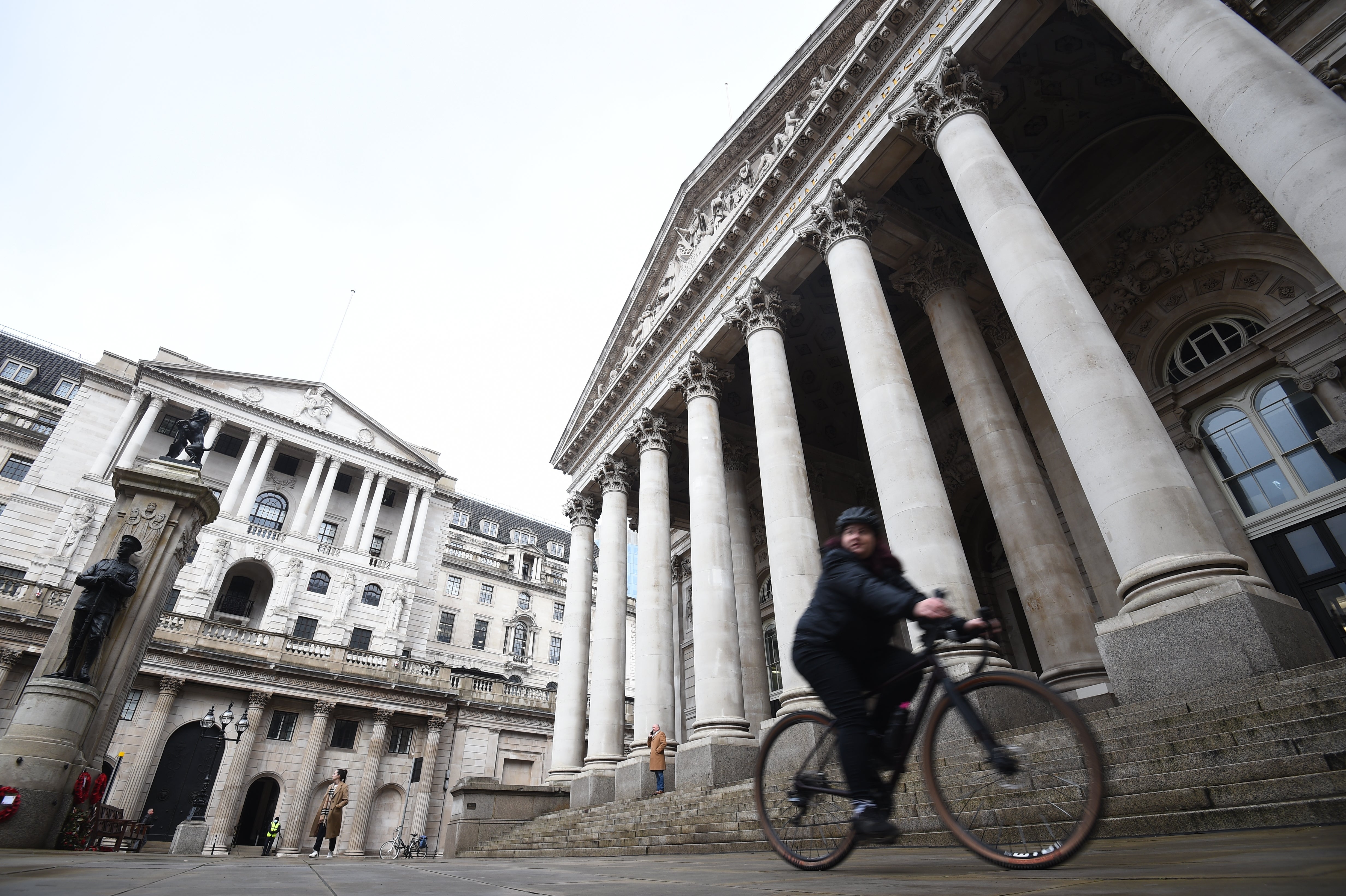Bank set to hold interest rates, but policymakers split on inflation threat
Speculation is mounting that the Bank may halt its £895 billion bond-buying programme as the economic recovery spurs on inflation.

Your support helps us to tell the story
From reproductive rights to climate change to Big Tech, The Independent is on the ground when the story is developing. Whether it's investigating the financials of Elon Musk's pro-Trump PAC or producing our latest documentary, 'The A Word', which shines a light on the American women fighting for reproductive rights, we know how important it is to parse out the facts from the messaging.
At such a critical moment in US history, we need reporters on the ground. Your donation allows us to keep sending journalists to speak to both sides of the story.
The Independent is trusted by Americans across the entire political spectrum. And unlike many other quality news outlets, we choose not to lock Americans out of our reporting and analysis with paywalls. We believe quality journalism should be available to everyone, paid for by those who can afford it.
Your support makes all the difference.The Bank of England will give its latest verdict on interest rates and the economy on Thursday amid a growing split among policymakers over the threat of soaring inflation as growth rebounds.
Members of the Bank’s Monetary Policy Committee (MPC) appear increasingly at odds over the need to swiftly remove some of its economy-boosting measures and whether surging inflation is temporary.
While interest rates are set to remain on hold at 0.1%, there is mounting speculation the Bank may halt its £895 billion quantitative easing bond-buying programme as the UK’s economic recovery spurs on sharp rises in the cost of living.
While there is a risk the Bank votes to suspend its remaining asset purchases, we expect downside risks from the latest Covid wave will persuade it to err on the side of caution and see out the current program
The decision comes after two rate-setters – deputy Bank governor Dave Ramsden and MPC external member Michael Saunders – said swift action may soon be needed to cool inflation.
This suggested there may be growing support on the MPC for QE to be curtailed, after the Bank’s former chief economist Andy Haldane had repeatedly been the lone voice calling for a £50 billion QE cut before he left the committee last month.
But others on the MPC – including deputy Bank governor Ben Broadbent – remain of the view that inflation will still ease back after the year-end.
Policymaker Jonathan Haskel and incoming MPC member Catherine Mann have also signalled now is not the right time to cut support for the economy, with rising cases and concerns over the new Covid-19 Delta variant increasing uncertainty.
Allan Monks, an economist at JP Morgan said: “While there is a risk the Bank votes to suspend its remaining asset purchases, we expect downside risks from the latest Covid wave will persuade it to err on the side of caution and see out the current program.”
He said the Bank was more likely to instead give forward guidance on its plans for winding down QE to calm inflation fears.
Either way, the Bank will be looked to for assurances it can keep above-target inflation in check after recent figures showed it jumped to its highest for almost three years in June, at 2.5%.
The Bank is expected to hike the inflation outlook in its quarterly set of economic forecasts, to 3.6% in the fourth quarter from 2.5% previously, according to Mr Monks.
He believes lower-than-expected gross domestic product figures for May – when the economy grew by 0.8% – will see the Bank nudge down its 2021 growth outlook to 7.1% from 7.3 previously, but edge it up in 2022 to 5.9%.
The peak unemployment forecast is also set to be trimmed to 5.2%, but there will be little sign of an imminent rate hike, he added.
“We look for the Bank to project inflation falling back to 2% at the two to three year horizon… this would likely see the Bank endorsing a hike during the second half of 2022, broadly consistent with our forecast for a fourth quarter 2022 rate rise,” said Mr Monks.